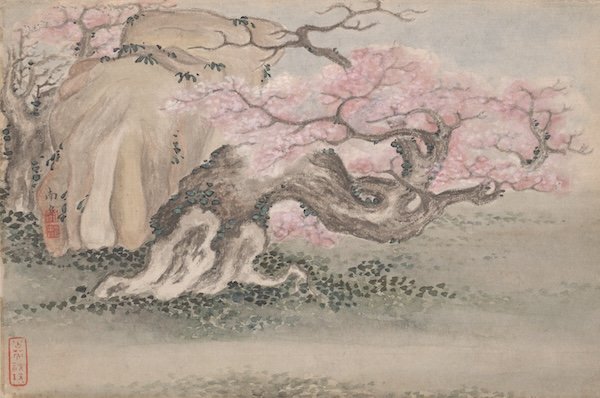
Spring Wellness
Spring is the beginning. It is the season of renewal and of nature coming to life. Yang qi has been in storage during the winter and it is now released; its emergence resulting in growth, flourishing, and blossoming. It is a season of harmony and the time to shake off any stagnant energy, get outside for a stroll through the park or a hike in the mountains, and to avoid sitting around and dwelling on things. Spring corresponds to the Wood phase (mù 木) and the liver organ system.
In spring it is recommended to get up early, but also to go to bed early to be sure to nourish the liver. The flavor that corresponds to the Wood phase and liver organ system is sour. Sour foods have an astringing affect (think of a lemon making your lips pucker) which balances the outward expansive tendencies of spring with contraction. However, it is recommended to not overdo it with sour foods in spring and rather eat more sweet foods. This is because in spring the wood phase is dominant and wood can overcome earth (associated with the spleen) in five phase theory. The spleen is associated with the flavor sweet, and so it is recommended to eat mildly sweet foods to nourish spleen qi at this time. This recommendation for eating more sweet tasting foods than sour in springtime comes from legendary Chinese doctor Sun Simiao of the Tang dynasty. Jujube dates, shanyao (Chinese yam), millet, and rice congee, are all good foods to nourish spleen and stomach at this time (see an excellent congee recipe here). Sun Simiao also said in his work Qianjin Fang “er san yue yi shi jiu” (二三月易食韭), recommending the consumption of leeks. Ginger, onions, and leeks are good at this time as they are warming foods. Green vegetables, various types of sprouts, and a light and nourishing diet are characteristic of spring. It is best to avoid foods that are too cooling at this time as well as raw foods. Also limit spicy foods as well as oily, fried, and greasy foods as they will aggravate the liver and spleen systems.
Wind is the environmental “evil” prevalent at this time and the liver system is especially prone to it. Although the Yang Qi of nature (and our bodies) is rising, the yin cold has not fully been dispelled yet. So despite the outdoor temperature trending up, it is best to keep the body covered up, nourish and protect your Yang Qi, and allow your body’s temperature regulation processes time to adapt. It is important to do your best to keep your emotions balanced to avoid affecting the liver system and pathological tendencies such as “liver fire rising.” Increased Yang Qi causes increased humidity and dampness, and some people can feel groggy, tired, or weak in spring. It is also common for chronic ailments to flare up in spring, and other detrimental influences that built up during the winter to surface at this time.
Correspondences
Yin (Zang) Organ: Liver
Yang (Fu) Organ: Gallbladder
Direction: East
Color: Green/Azure
Flavor: Sour
Climate: Wind
Orientation: Outward
Sense Organ: Eyes
Tissue: Sinews, Tendons, Connective Tissue
Positive Emotion: Benevolence (ren 仁)
Negative Emotion: Anger (nu 怒)
Recommended Foods
| Vegetables | Fruit |
| Leafy Dark Green Vegetables Asparagus Broccoli Dandelion greens Sprouts Green onion Leeks Corriander Celery Cilantro Eggplant Chives Garlic Radish Chinese yam (shan yao 山药) | Citrus fruits Tangerine Kiwi Grapefruit Rhubarb |
| Protein | Carbohydrates |
| Chicken Shrimp White fish Eggs | Brown rice Rye spelt Wheat bran Sprouted rice |
| Other | Eat Less |
| Green tea Vinegar Ginger Rose Chrysanthemum Goji Jujube date Qian shi Chenpi (aged tangerine peel) | Spicy food Alcohol Salt |
Featured image from: Landscapes and Calligraphy, Gao Fenghan (1736) (cropped)
1. 徐州金山桥社区卫生服务中心, 春不养,夏易病”,春季养生攻略来了! https://mp.weixin.qq.com/s/8f1wG43DDcP6EsbIJ_DOFA
2. 中国医药报, 2023: 春季养生饮食六原则. https://jiankang.cctv.com/2023/04/24/ARTITEmo2HPksGVLOpwZbZ7i230424.shtml
3. Fruehauf, H., Dharmananda, S., 2010: Promoting Health During the Four Seasons. http://www.itmonline.org/articles/four_seasons/four_seasons.html4. Lihong, L., 2019: Classical Chinese Medicine. The Chinese University of Hong Kong Press.

